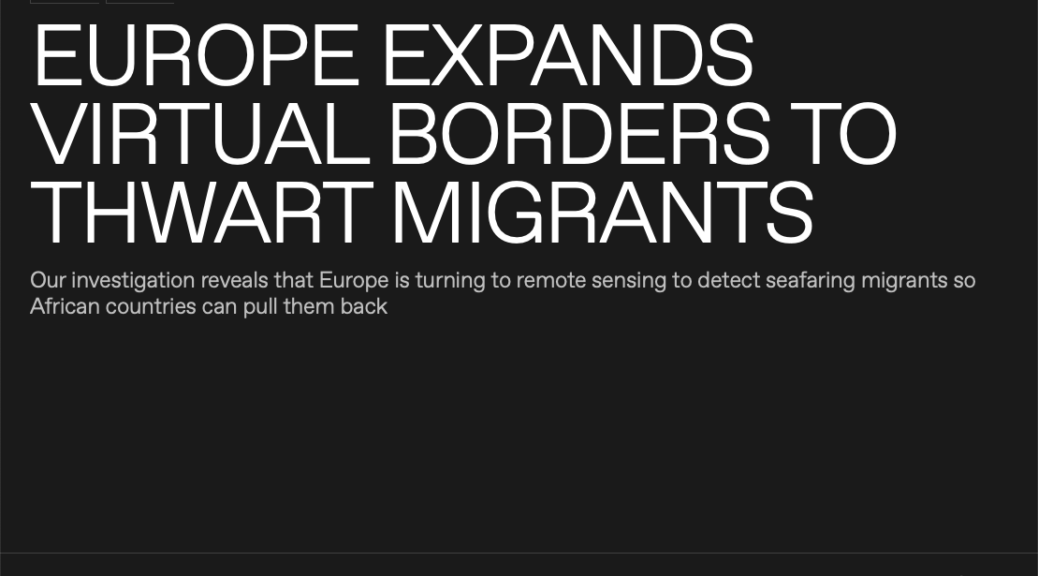I recorded the Madrid end of an interview for Gastropod. The interview, with Stefanie Malan-Müller, is woven into the Gut Feeling episode: https://gastropod.com/gut-feeling
All posts by LL
Europe Expands Virtual Borders To Thwart Migrants
IT WAS AFTER MIDNIGHT in the Maltese search-and-rescue zone of the Mediterranean when a rubber boat originating from Libya carrying dozens of migrants encountered a hulking cargo ship from Madeira and a European military aircraft. The ship’s captain stopped the engines, and the aircraft flashed its lights at the rubber boat. But neither the ship nor the aircraft came to the rescue. Instead, Maltese authorities told the ship’s captain to wait for vessels from Malta to pick up the migrants. By the time those boats arrived, three migrants had drowned trying to swim to the idle ship.
Continue reading Europe Expands Virtual Borders To Thwart MigrantsTranslated story: Spain, Czechia, Denmark and Belgium are the meccas of reproductive tourism
When Marie and her partner failed to conceive a baby for almost a decade, they ran into a wall. “We did a [gamete] donation procedure in France that didn’t work,” she says. At the same time they had to face another problem: the wait lists for assisted reproduction were two years long. “And when it doesn’t work, you have to wait another two years,” Marie points out. The delays made them fear the worst: ageing past the limit of 45 years old that France imposes on women for accessing ART. “If you can financially handle it, you’ll go to another European country which has the same assisted reproduction procedures, but faster,” she explains.
You can read the full story at Civio. This is the second story in a two-part series published by Civio and its partner the European Data Journalism Network. The second story is available at Civio and EDJN.
Translated Story: Pay up or put it off: how Europe treats depression and anxiety
In many European countries, the availability of psychological treatment in the public healthcare system is inadequate or even non-existent. Barriers such as long waiting lists, co-payments and inadequate resources push people with anxiety or depression -those who can afford it- to the private system.
[See the original story for the data visualizations.]
“Mental health is like the dentist. In most countries of the European Union, everything that happens to you physically is covered, but to go to the dentist you have to pay extra and it’s the same for taking care of your mental health,” says Marcin Rodzinka, spokesperson for Mental Health Europe.
Depression and anxiety are the most common mental health conditions diagnosed in the European Union. Four out of every 100 people have been diagnosed with depression, five out of every 100 with anxiety. The conditions should not be underestimated, as is often the case, says Javier Prado, spokesperson for the National Association of Clinical and Resident Psychologists in Spain (ANPIR): “If they are not treated on time and the right way, they end up generating a very significant disability.”
Yet national public healthcare systems do not always include treatment for these problems, despite the fact that in some EU countries, such as Portugal, the Netherlands or Ireland, anxiety exceeds seven cases per 100 people. Greece is the country with the highest prevalence of depression, followed by Spain and Italy. Nel Zapico, president of the Spain Mental Health Confederation, explains the importance of these high rates, especially the number of people with depression: “It is a scourge, because it also has a sometimes quite dramatic exit and that has a lot to do with suicide”.
Continue reading Translated Story: Pay up or put it off: how Europe treats depression and anxiety